
The transformation of Thai education is gaining significant momentum through an innovative decentralized collaborative framework. Central to this shift is the establishment of Education Assemblies across 37 provinces, marking a strategic move toward more localized and responsive educational management. Though operating under various names, these assemblies share a unifying mission: to unite diverse stakeholders in pursuit of a collective educational goal. Predominantly government-led, these assemblies are increasingly bolstered by growing regional collaboration, which is paving the way for mitigating educational disparities. Infused with additional momentum by rising private sector interest, these efforts are evolving into a pivotal force in Thai education. This shift underscores a fundamental principle: education should not rest solely on the Ministry of Education or the Education Council; rather, it should be a collective endeavor, shaped by all stakeholders in their respective roles and contexts.
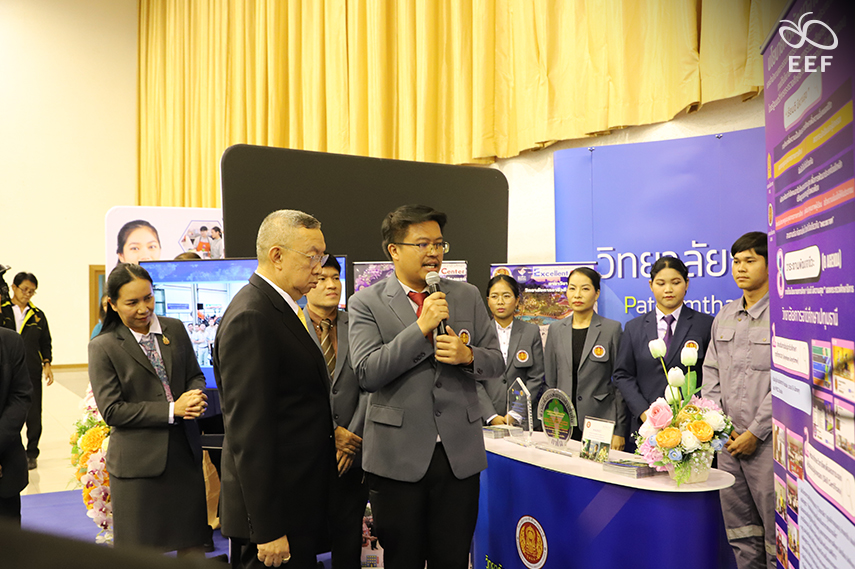
As the world is rapidly evolving, lifelong learning gaining critical importance, and the necessity for all parties to “think independently” becomes evident. Each area’s unique context — be it cultural diversity or readiness levels — demands a tailored approach to educational development. Emerging in this dynamic landscape is the National Education Assembly, serving as a key forum for generating actionable insights and innovative approaches.
Here, representatives from across the country are encouraged to embrace and engage in “outside-the-box” thinking, exploring how local issues and contexts can be addressed while catalyzing collaborative efforts for educational advancement. They examine how necessary improvements can be reviewed collectively as progress unfolds, determining who will contribute ideas, who will take action, and who will provide support. Additionally, they consider what immediate steps can be taken for initiatives with the potential to “revolutionize education,” and how swift and decisive changes can be ensured. This approach not only shapes the future of education in each province but also influences national policies, driving a collective transformation that prioritizes quality, inclusivity, and adaptability in an ever-changing world.
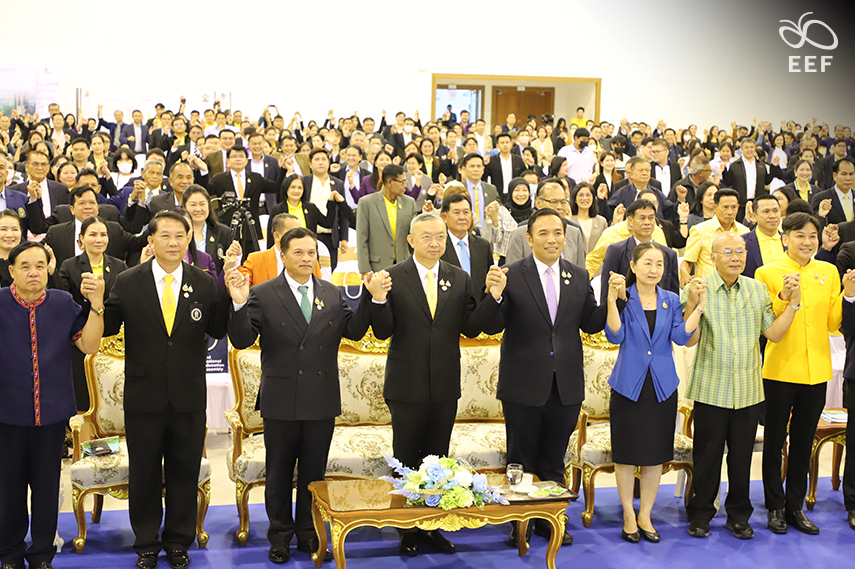
Notably, among the critical structural issues requiring immediate attention are socio-economic inequality and educational loss. To address socioeconomic inequality, Education Assemblies must design pathways that provide stability and self-reliance for students and communities, ensuring they can thrive within society. This includes creating supportive learning environments that offer counseling, mentorship, and resources for personal and academic success. By prioritizing these strategies, we can build a more equitable educational system that fosters long-term success and resilience for all students. In tackling educational loss, it is essential to go beyond mere degree attainment. Many graduates face challenges in applying their academic knowledge practically. Therefore, it is crucial to incorporate real-world problems into curricula, provide hands-on learning experiences, and enhance vocational training. By focusing on these practical applications and stable support systems, we can better prepare students for real-life challenges and reduce educational loss.
Crucially, this effort must prioritize quality over quantity, concentrating on ensuring that each assembly comprehensively meets local needs rather than hastily establishing new ones. As local assemblies grow stronger, the exchange of knowledge between provinces with shared objectives will strengthen, contributing to the development of a dynamic national assembly that brings all stakeholders together. This national body will facilitate the transfer of knowledge, models, and practices across areas, promoting a broader and more effective dissemination of educational strategies.
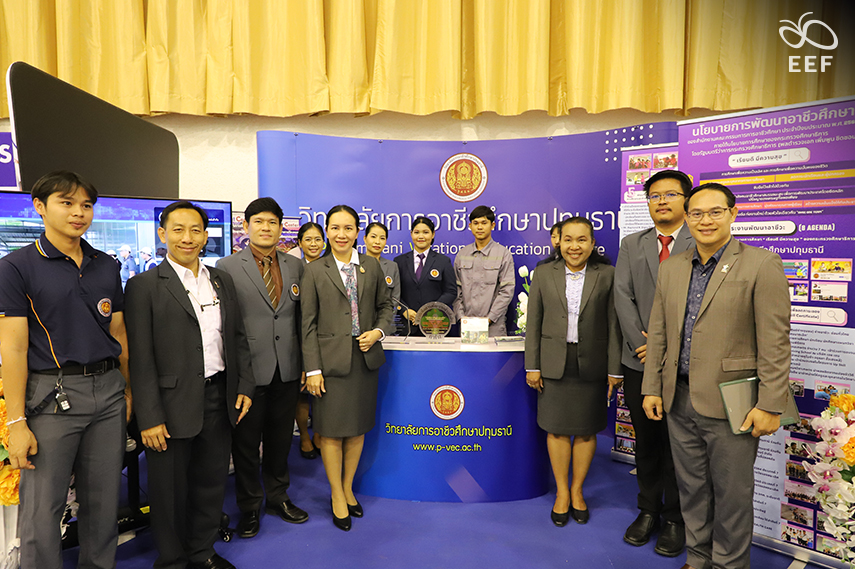
Integral to this network is the Equitable Education Fund (EEF) Thailand, which has recently established formal collaborations with ten major national agencies to advance the government’s Thailand Zero Dropout policy.
Four key measures are being piloted in 25 provinces, with plans to expand nationwide:
1) Linking data to identify children and youth not registered in the educational system;
2) Monitoring and assisting these individuals;
3) Implementing flexible educational systems to accommodate diverse student needs, and
4) Collaborating with the private sector to enhance education opportunities and employment prospects for these learners.
Findings from the pilot work on out-of-school children and youth across 25 provinces indicate that those with established education assemblies or councils are better positioned to advance their efforts, whose progress hinges upon collaboration among government bodies, private enterprises, civil society organizations, and local educational volunteers. This initiative aligns with the Office of the Education Council’s ongoing advocacy for establishing educational councils under the National Education Act, and it is anticipated to be instrumental in achieving the Thailand Zero Dropout goal, enabling all educational network stakeholders in the regions to collectively work towards reducing dropouts down to zero.

The National Education Assembly is grounded in the principle of decentralizing education authority, emphasizing the participation of all societal sectors. This inclusive approach aligns education management with community needs, promoting a shift from government-led initiatives to a collaborative societal endeavor. The Assembly seeks to develop policy recommendations for legal and regulatory reforms, aimed at incentivizing and supporting funding, advocating for diverse educational approaches, and establishing networks to enhance system and management mechanisms. This collaboration through regional and national assemblies is intended to make Area-Based Education (ABE) a central mechanism, engaging stakeholders who understand local issues and have resources within their contexts. This approach aspires to elevate national education quality under the guiding principle of “All for Education,” ensuring genuine involvement from all sectors.
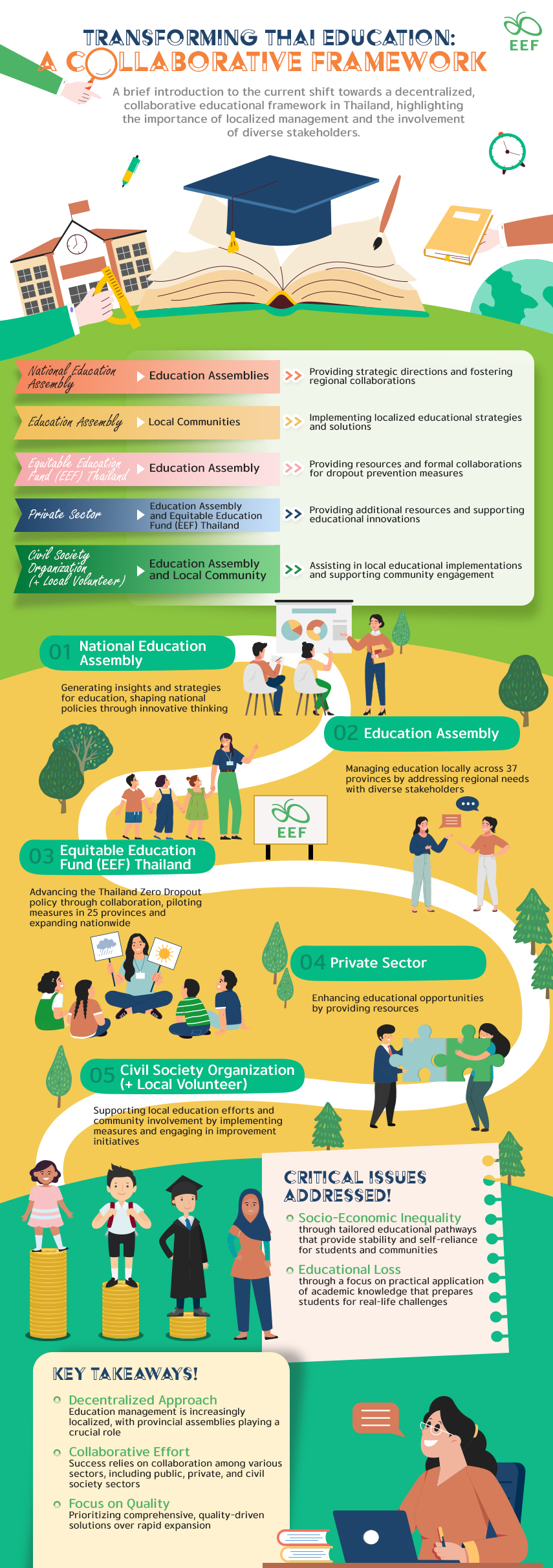
The transformative landscape of Thai education is shaped by a network of interconnected initiatives and organizations. Education Assemblies across 37 provinces unite local stakeholders to address regional educational disparities and foster innovative solutions tailored to their contexts. These assemblies feed into the broader framework of the National Education Assembly, which provides a central forum for actionable insights and national collaboration. Integral to this network is the Equitable Education Fund (EEF) Thailand, which formalizes partnerships with ten national agencies to advance the Thailand Zero Dropout policy by identifying and supporting out-of-school youth and implementing flexible education systems. Supported by the Office of the Education Council and driven by the Area-Based Education (ABE) mechanism, which ensures that education management aligns with local needs, this network collectively aims to achieve the Thailand Zero Dropout goal, thereby enhancing educational quality and equity nationwide under the guiding ethos of “All for Education.”
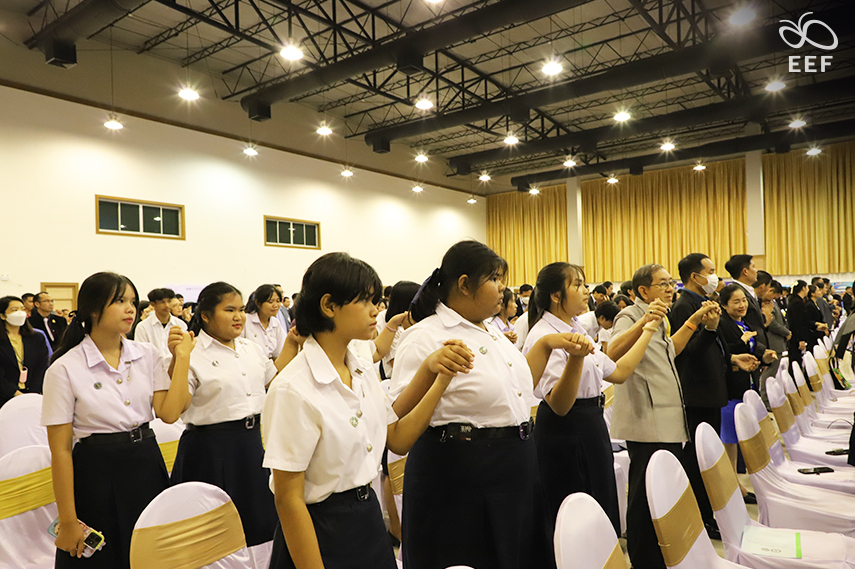
The organization of the 2nd National Education Assembly, co-hosted by the Equitable Education Fund (EEF) Thailand, marks a significant advancement in the pursuit of the ambitious Thailand Zero Dropout policy. This pivotal event has brought together a diverse array of stakeholders, facilitating a strategic alignment of efforts aimed at bridging educational disparities. By focusing on collaborative discussions and decision-making, the Assembly enhances the development and refinement of strategies to effectively tackle the root causes of school dropouts. The initiatives and insights generated will be crucial in tailoring measures to local contexts, thereby reinforcing the national framework for education. This concerted effort will not only bolster the response to dropout challenges but also foster a more inclusive and adaptable educational system, driving progress toward the ultimate goal of achieving zero dropout rates and improving educational outcomes throughout Thailand. Ultimately, it is this unified approach, ensuring every stakeholder is truly on the same page, that will transform ambition into reality and pave the way for a brighter, more equitable future — true to the EEF’s founding ethos: to reduce education inequality through research, collaboration, and support for children, youth, and adults in need.

